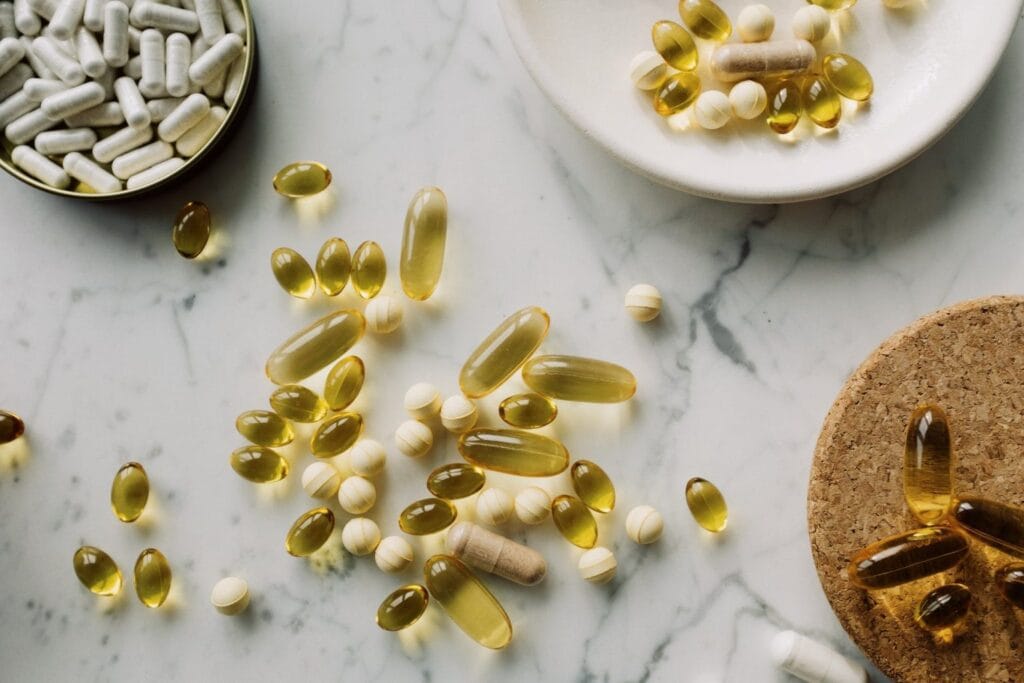Top Supplements for Colitis – What Helps with Inflammation and Gut Healing
For individuals living with colitis, finding strategies to reduce inflammation, manage flare-ups, and support gut healing is essential. While medications and dietary changes are key pillars of treatment, certain supplements may provide additional support when used carefully and in consultation with a healthcare provider.

Probiotics are among the most commonly recommended supplements for colitis. These beneficial bacteria help rebalance the gut microbiome, which is often disrupted in people with inflammatory bowel disease (IBD). Strains such as Lactobacillus and Bifidobacterium have been studied for their potential to improve digestion and reduce inflammation.
Omega-3 fatty acids, particularly those found in fish oil (EPA and DHA), may help lower inflammation levels throughout the body, including in the digestive tract. Research suggests omega-3s may reduce the frequency and severity of flare-ups in some people with colitis.
Another anti-inflammatory supplement to consider is curcumin, the active compound in turmeric. Curcumin has been shown to support gut barrier function and reduce intestinal inflammation, making it a potential complement to traditional treatments.
Vitamin D is also frequently recommended for people with colitis, as deficiency is common and may be linked to disease activity. Supplementing with vitamin D may help regulate immune function and support overall digestive health.
L-glutamine, an amino acid, plays a critical role in maintaining and repairing the intestinal lining. For individuals experiencing diarrhea or intestinal damage, l-glutamine may help support gut healing.
Aloe vera supplements are sometimes used for their soothing effects on the digestive system. However, it’s important to choose decolorized and purified forms, as some aloe products may have laxative effects that can worsen symptoms.
Magnesium and zinc are additional nutrients to watch. Magnesium may help with muscle relaxation and bowel regularity, while zinc supports immune response and tissue repair—functions that are especially important during colitis flares or recovery.
While supplements can offer relief and support, they are not a substitute for prescribed treatments or professional care. Always consult your healthcare provider before starting any new supplement regimen, especially if you have chronic GI conditions like colitis.
More from NIH: Ulcerative Colitis
See what lists are trending: Trending Lists

1
Digestive Enzymes
495
86
People with colitis often struggle with digestion and nutrient absorption. Digestive enzyme supplements can help break down food more effectively and reduce bloating and discomfort.

2
L-Glutamine
409
66
An essential amino acid that supports gut lining repair and helps prevent leaky gut. It may reduce diarrhea and inflammation while supporting overall intestinal health.

3
Psyllium Husk (Soluble Fiber)
357
36
If tolerated, psyllium husk helps regulate bowel movements by adding bulk to stools. It can help manage diarrhea or constipation, but some people with colitis may need to avoid excessive fiber during flare-ups.

4
Slippery Elm
377
59
This plant-based supplement forms a soothing mucilage in the intestines, helping to reduce inflammation and protect the gut lining from irritation. It can ease symptoms like diarrhea and abdominal discomfort.

5
Probiotics
371
61
Beneficial bacteria like Lactobacillus and Bifidobacterium help restore gut flora, improve digestion, and reduce inflammation. Probiotics can help maintain remission in colitis and reduce symptoms like bloating and diarrhea.

6
Collagen Peptides
345
38
Collagen supports gut lining integrity and helps heal damage caused by inflammation. It contains amino acids like glycine and proline, which promote intestinal health.

7
Resveratrol
378
74
Found in grapes and berries, resveratrol is a natural anti-inflammatory compound that may help regulate immune response and gut inflammation in colitis patients.

8
Methylated B Vitamins (B12, B6, Folate)
342
60
Colitis can cause B-vitamin deficiencies due to malabsorption. Methylated forms of B12 (methylcobalamin) and folate are easier to absorb and help support energy, brain function, and gut health.

9
Magnesium
329
57
Many people with colitis experience magnesium deficiency due to malabsorption. Magnesium supports digestion, prevents muscle cramping, and helps regulate bowel movements. Magnesium glycinate or citrate is best for absorption.

10
Turmeric (Curcumin)
266
27
Curcumin, the active ingredient in turmeric, has powerful anti-inflammatory effects and has been shown to reduce colitis symptoms and maintain remission when taken consistently. Look for bioavailable curcumin supplements (with black pepper extract).

11
Vitamin D
281
43
Many colitis patients have low vitamin D levels, which can increase inflammation and affect immune function. Taking 1,000–5,000 IU daily may help reduce disease severity and improve gut lining integrity.

12
Chamomile Extract
237
37
Chamomile has natural anti-inflammatory and calming effects, making it beneficial for soothing an irritated digestive system and reducing stress-related flare-ups.

13
Zinc
216
43
Zinc is essential for immune function and gut repair. Since chronic inflammation can lead to zinc deficiency, supplementing may help with gut healing and reducing colitis symptoms.

14
Boswellia Serrata
179
24
This herbal extract has potent anti-inflammatory effects similar to NSAIDs but without the gut irritation. It can help reduce colitis flare-ups and support gut healing.

15
Quercetin
112
22
A plant-based flavonoid with anti-inflammatory and antioxidant properties that may help reduce intestinal inflammation and oxidative stress in colitis patients.

16
Aloe Vera Gel Capsules
97
11
Aloe vera has natural soothing and anti-inflammatory properties, helping to heal the gut lining and reduce irritation in the intestines. It can be beneficial for mild-to-moderate colitis.

17
Omega-3 Fatty Acids (Fish Oil, Flaxseed Oil)
91
16
Omega-3s have anti-inflammatory properties that help reduce intestinal inflammation. Found in fish oil or flaxseed, they can lower flare-up frequency and promote gut healing.

18
N-Acetyl Glucosamine (NAG)
78
9
Helps support mucosal repair and gut lining health, potentially reducing colitis symptoms by strengthening the intestinal barrier.

